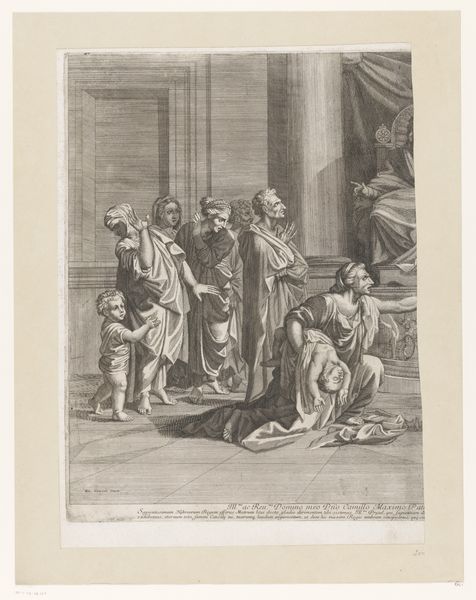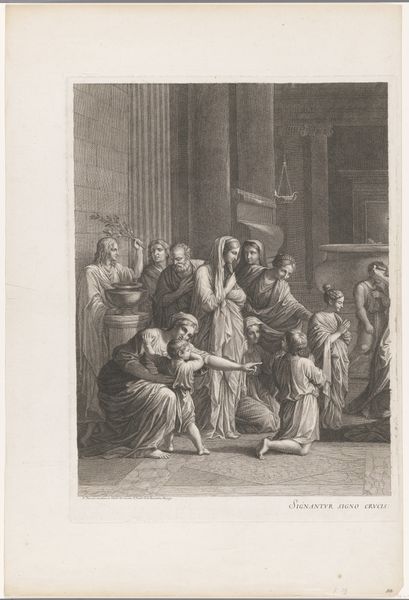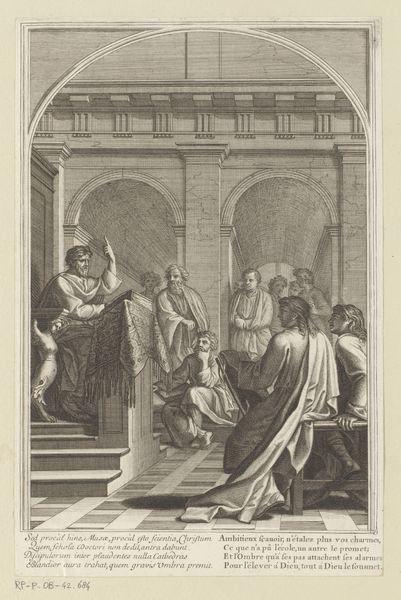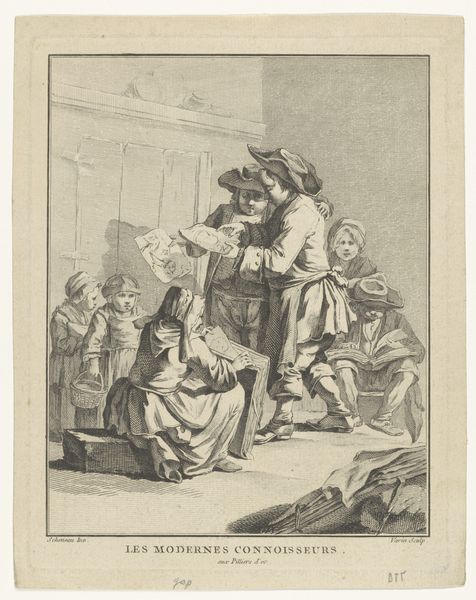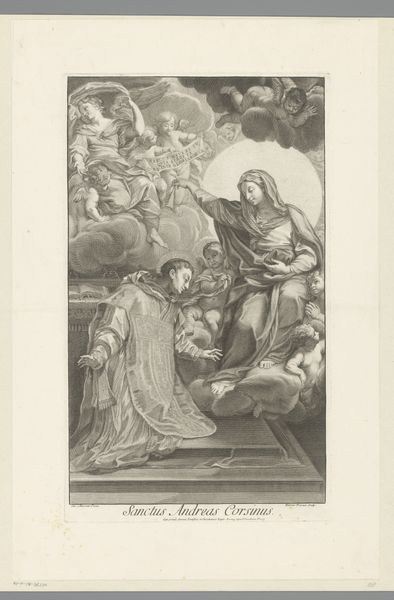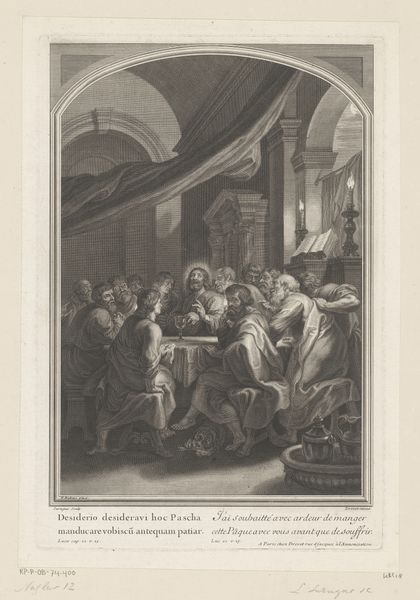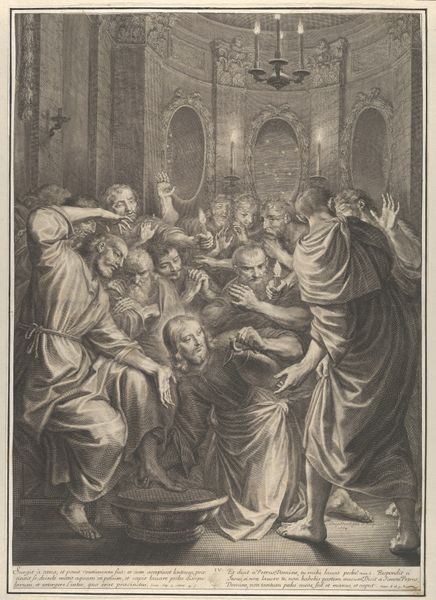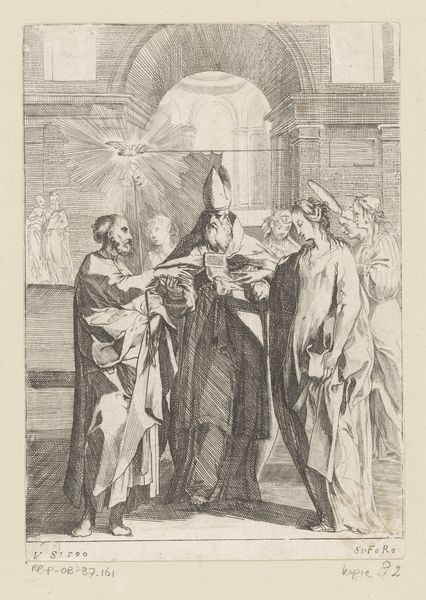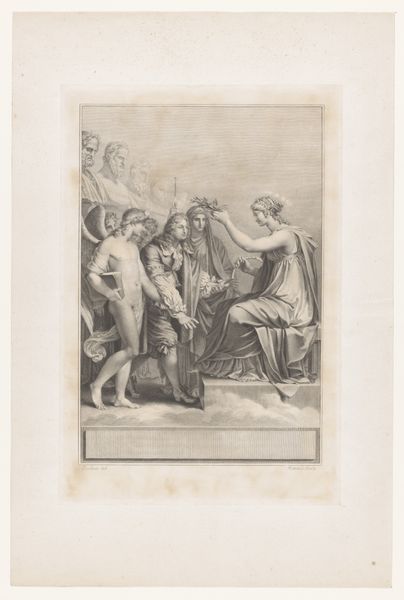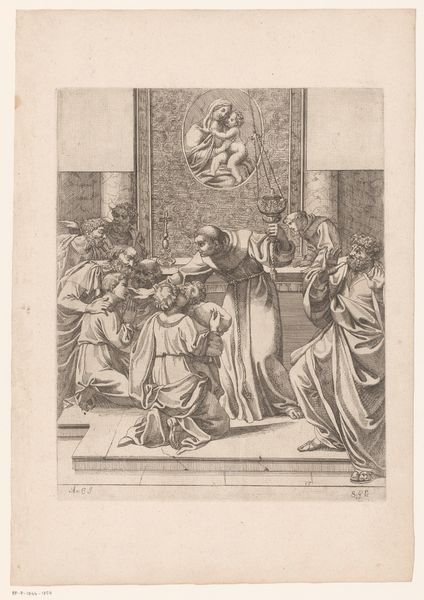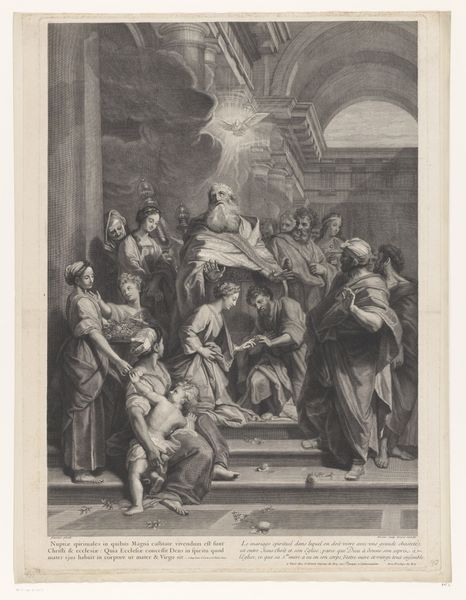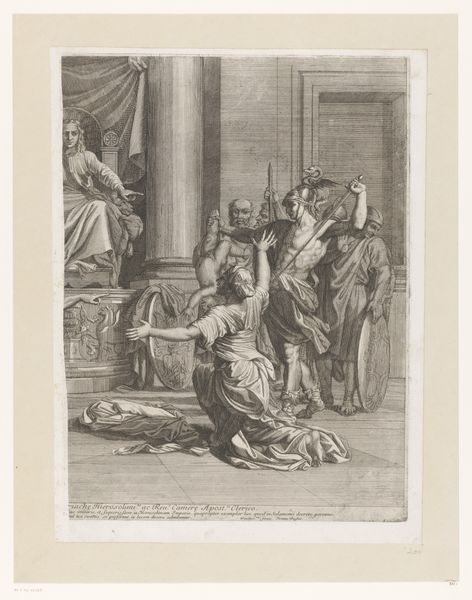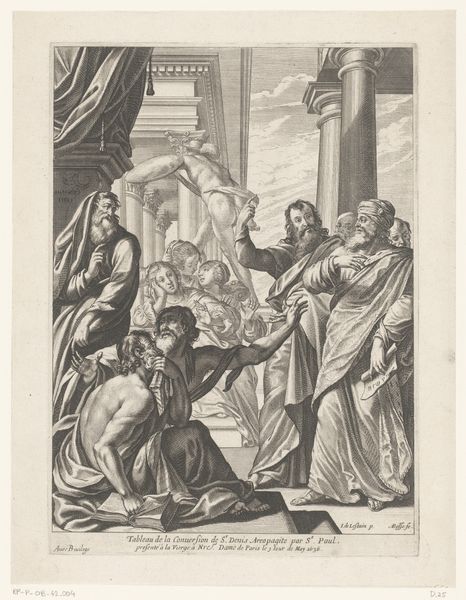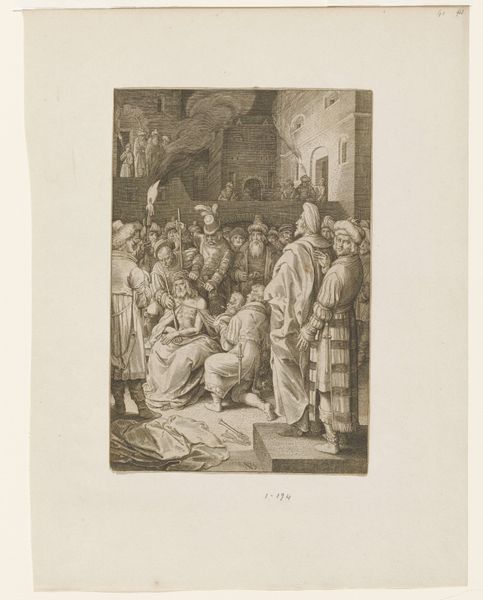
Dimensions: height 208 mm, width 164 mm
Copyright: Rijks Museum: Open Domain
Christian Bernhard Rode made this print, Presentation in the Temple, using etching, sometime in the 18th century. The etcher meticulously covered a metal plate with a waxy, acid-resistant coating. Then, using a sharp needle, he scratched an image into the wax, exposing the metal beneath. Next, the plate was submerged in acid, which bit into the exposed lines, creating grooves. The longer the plate sat in the acid, the deeper the lines became, affecting how much ink they would hold. Finally, the plate was inked, the surface wiped clean, and then pressed onto paper, transferring the image. Here, Rode’s technical skill allowed for incredibly fine lines, which is most noticeable in the textures of the clothing and the smoke rising from the altar. The subtle gradations of light and shadow, created by varying the density and depth of the etched lines, give the scene a sense of depth and drama, characteristic of the period. Thinking about process helps us understand how artists like Rode brought biblical scenes to life for a wide audience, using techniques that bridged craftsmanship and artistic expression.
Comments
No comments
Be the first to comment and join the conversation on the ultimate creative platform.
